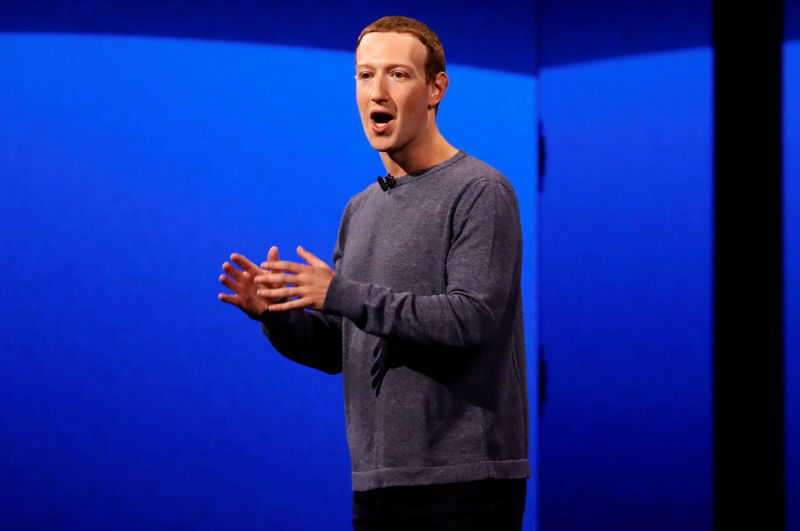By Katie Paul and Joseph Menn
SAN FRANCISCO (Reuters) - Facebook Inc (NASDAQ:FB) Chief Executive Officer Mark Zuckerberg defended on Thursday his decision to encrypt the company's messaging services, despite concerns about its impact on child exploitation and other criminal activity.
The United States, Britain and Australia signed an open letter earlier in the day calling for Facebook to suspend its encryption plan, saying it would hinder the fight against child abuse and terrorism.
Zuckerberg, speaking in a livestream of the company's weekly internal Q&A session, said he had been aware of child exploitation risks before announcing his encryption plan and acknowledged that it would reduce tools to fight the problem.
"When we were deciding whether to go to end-to-end encryption across the different apps, this was one of the things that just weighed the most heavily on me," he said.
Addressing an employee question about online child abuse, Zuckerberg acknowledged that losing access to the content of messages would mean "you're fighting that battle with at least a hand tied behind your back."
But he said he was "optimistic" that Facebook would be able to identify predators even in encrypted systems using the same tools it used to fight election interference, like patterns of activity and links between accounts on different platforms.
He also suggested the company might further limit the ways adults can interact with minors on Facebook's platforms.
Zuckerberg announced his plan to pivot the company toward more private forms of communication in March, capping months of internal debate over the merits of encryption, three sources familiar with the discussions told Reuters.
Inside the company, privacy engineers and others eager to shed the legacy of the Cambridge Analytica scandal saw the move as a win, as did product managers watching the steady uptick of growth at Facebook's encrypted messaging service WhatsApp.
But members of Facebook's safety team familiar with the child exploitation risks argued against the plan, raising deep concerns through the group's leaders and in large company meetings with senior executives, the sources said.
The United States, Britain and Australia said in their joint letter that they had engaged with Facebook on the issue, but that the company had not committed to addressing their "serious concerns" about the impact of its proposals.

The National Center for Missing and Exploited Children also met with Zuckerberg and other senior leaders of Facebook, who offered assurances that child safety was important to them.